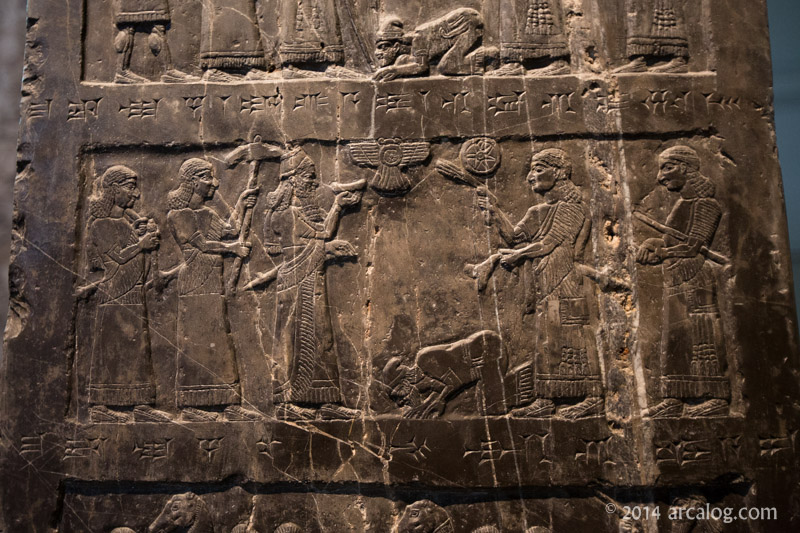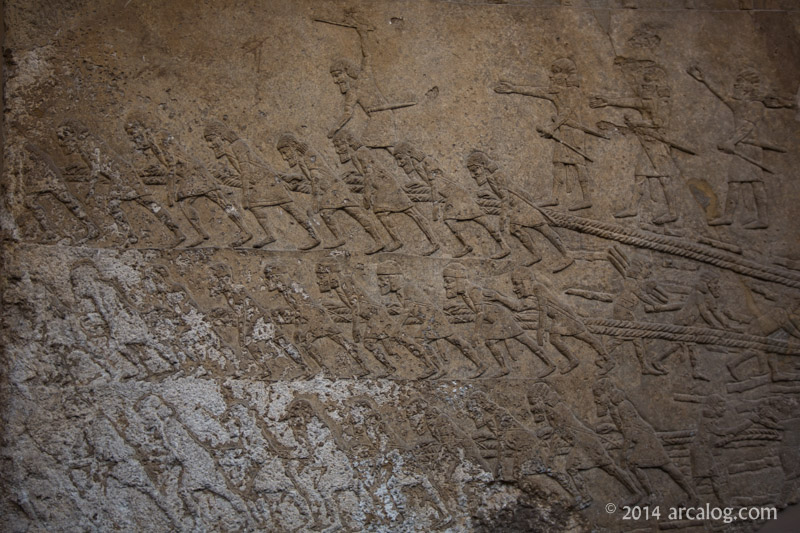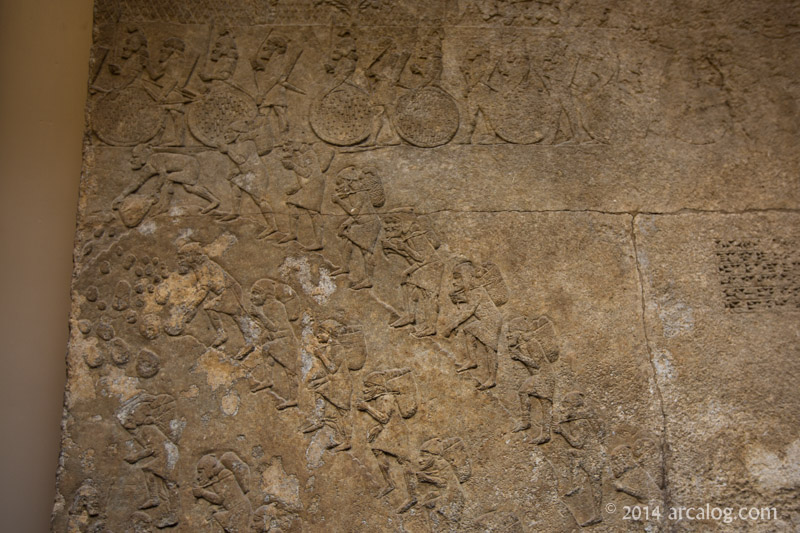Israel was brought out of the ‘house of slavery’ to the land of Promise. The bars of their yoke were broken, and they were made “to walk erect”. (Lev 26:13 ESV) In the laws of kingship in Deuteronomy, the king was expressly forbidden from selling his people back into slavery to Egypt in order to acquire horses, because “You shall not return that way again.” (Deu 17:16 ESV)
The prophet Isaiah opposed making a treaty with Egypt because he saw such an alliance as a rejection of the Sinai covenant.
“Egypt’s help is worthless and empty; therefore I have called her “Rahab who sits still.”… For thus said the Lord GOD, the Holy One of Israel, “In returning and rest you shall be saved; in quietness and in trust shall be your strength.” But you were unwilling…” (Isa 30:7-8, 15 ESV)
Isaiah likewise warned Ahaz from making an alliance with Assyria. Isaiah said to the king, “If you do not stand in faith, you will not stand at all!” But Ahaz insisted on pursuing a more ‘pragmatic’ foreign policy and purchased a few years of peace by paying tribute to the Assyrian king Tiglath Pileser III. (pic)
In the second chapter of Jeremiah, the signing of treaties with Assyria and Egypt are equated with idolatry. The prophet charged the people with forsaking the fountain of living water to hew out broken cisterns that can hold no water. Jeremiah asks, “Is Israel a servant, a slave by birth? Why then has he become plunder? Now why go to Egypt to drink water from the Nile? And why go to Assyria to drink water from the Euphrates?” (Jer 2:14 NIV) Israel’s freedom was conditioned upon obedience to the covenant at Sinai but Israel broke the conditions of the covenant, symbolized by breaking off the yoke of the Law.
19 Your wickedness will punish you; your backsliding will rebuke you. Consider then and realize how evil and bitter it is for you when you forsake the LORD your God and have no awe of me,” declares the Lord, the LORD Almighty. 20 “Long ago you broke off your yoke and tore off your bonds; you said, ‘I will not serve you!’ Indeed, on every high hill and under every spreading tree you lay down as a prostitute. (Jer 2:18-20 NIV)
Israel traded the yoke imposed upon them at Sinai for the yoke of a foreign king. This humiliation is graphically born out on the Black Obelisk (although a little earlier than the time of Jeremiah) on which Jehu is portrayed paying homage to the Assyrian King, Shalmaneser III, under the tutelage of Assyria’s gods.

Assyrian kings often spoke of placing their ‘yoke’ on those they have conquered:
I destroyed the lands of Saraus (and) Ammaus, which from ancient times had not known submission, (so that they looked) like ruin hills (created by) the deluge. I fought with their extensive army in Mt. Aruma, and rbought about their defeat. I laid out like grain heaps the corpses of their men-at-arms. I conquered their cities, took their gods, and brought out their booty, possessions (and) property. I burned, razed, (and) destroyed their cities (and) turned them into ruin hills. I imposed the heavy yoke of my dominion on them (and) made them vassals of Assur, my lord. (Tiglath Pilerser I, B. Foster, Before the Muses)
A common justification used by Assyrian kings for marching to war was to crush those who sinfully ‘throw off the yoke’.


Isaiah looked forward to the day when the yoke of burden would depart from Israel (Is. 14:25; cf. 10:27), and the oppressors staff would be broken. (Isaiah 9:4) For a king would be born who would take the government upon his shoulders instead of laying it on the backs of his subjects. (Isaiah 9:5) He will be called the Prince of Peace and the Wonderful Counselor (Isa 9:6), the Shepherd who gives rest to the anxious soul (Isa 40:11; 28:11), the Servant who gives his life for many (Isa 40-66; Matt. 20:28). He will bring good news for the poor and bind up the wounds of the broken hearted. (Is. 61:1) The Stone that the builder’s rejected has become the Cornerstone, how marvelous it is in our eyes! (Psa 118:23, cf. Is. 8: 14 cf. 28:16)
Click the ‘expand’ button to view full res panorama.
Click the ‘expand’ button to view full res panorama.